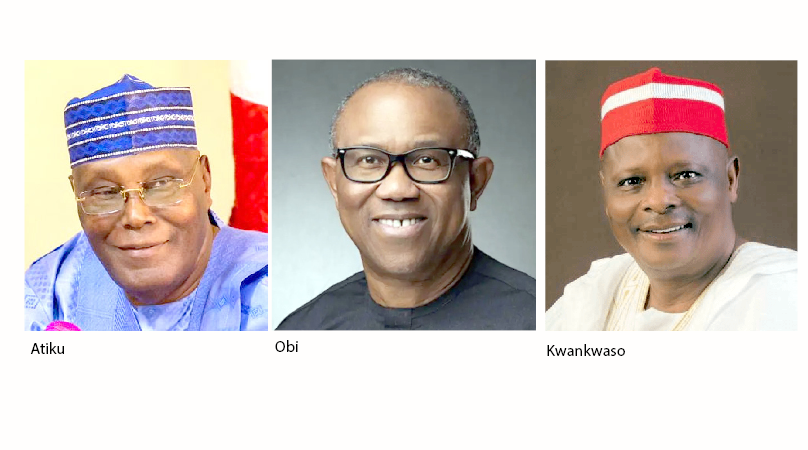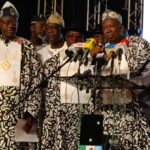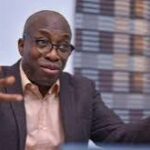With the 2023 general elections gone and all legal issues surrounding the emergence of President Bola Tinubu resolved by the Supreme Court, opposition parties have kicked off the process of healing their wounds and forming a merger ahead of 2027.
But the big question many have continued to ask is how their dream would materialise sequel to the avalanche of factors and unresolved issues surrounding their bids.
Bigwigs across party lines have commenced talks and consultations to form a merger as strong indications have emerged that President Tinubu would be seeking a second term of office at the expiration of his first term in 2027.
Recall that a similar merger occurred in 2013 when the Congress for Progressive Change (CPC), Action Congress of Nigeria (ACN), All Nigeria Peoples Party (ANPP), part of the All Progressives Grand Alliance (APGA) and a faction of the Peoples Democratic Party (PDP) called the new PDP collapsed their structures and formed the All Progressives Congress (APC).
- How INEC overcame insecurity, electoral violence in 2023 elections
- 2023 polls: Why server failed to upload presidential results – INEC
On November 15, 2023, the PDP presidential candidate in the February 25, 2023 poll, Atiku Abubakar, called on opposition parties in the country to form a coalition to stop the APC from “turning” the country into a one-party state. He spoke when he received members of the National Executive Committee (NEC) of the Inter-Party Advisory Council (IPAC).
He said, “We have all seen how the APC is increasingly turning Nigeria into a dictatorship of one party. If we don’t come together to challenge what the ruling party is trying to create, our democracy will suffer for it and the consequences of it will affect the generations yet unborn.”
Following this, the PDP, New Nigeria Peoples Party (NNPP), African Democratic Congress (ADC), Allied Peoples Movement (APM), Social Democratic Party (SDP), Young Progressives Party (YPP) and Zenith Labour Party (ZLP) announced the formation of a movement called the Coalition of Concerned Political Parties (CCPP) after a meeting attended by leaders of the seven parties at SDP’s national headquarters in Abuja on December 6, 2023.
Professor Pat Utomi had also disclosed, while featuring on Channels TV recently, that he had been engaging with the presidential candidate of the PDP, Atiku Abubakar; Labour Party’s Peter Obi and NNPP’s Rabiu Musa Kwankwaso, on the need to form a mega party that would wrest power from the APC in 2027.
Opposition leaders have consistently criticised the administration of President Tinubu, saying he introduced some economic policies that have caused more hardship, poverty and pain in the land. They have also lamented the deteriorating security situation in the country.
But the APC national publicity secretary, Felix Morka, a lawyer, has asked Nigerians not to take promoters of the proposed merger seriously but stand with the APC.
Collapsing structures
Findings by Daily Trust Saturday revealed that the presidential candidates of various opposition parties championing a merger have not yet convinced their entire party organs and critical stakeholders to agree to collapse the structures of their parties. They are also yet to agree on the name of the new party to be registered.
Our correspondent gathered that for a merger to occur, all the parties involved are duty-bound to return their certificates of registration to the Independent National Electoral Commission (INEC), which will then register the new mega party.
But as it stands, pundits said the proposed merger would likely hit the rocks due to the various interests of those involved.
An elder statesman, Chekwas Okorie, told Daily Trust Saturday in a telephone interview that “the only merger that has ever worked in Nigeria is the merger that brought about the APC. In a merger situation, all the parties return their certificates of registration to INEC because they must give the commission a notice.
“So, former presidential candidates who are championing the so-called merger, to what extent have they carried their parties along? This is because if their parties are not with them, the merger will fail.
“Individuals and their followers can only join one party, and you can’t call that merger. A merger has to involve the entire party leadership so that there won’t be a dissenting voice when you return the certificate of registration to INEC and assume a new name.
“However, there is plenty of time between now and the next elections for a merger to occur. But forming alliances after an election is a useless exercise. So, a merger is possible, but it must be between the parties involved, not the so-called leaders.
“The constitution is clear, the guideline is clear on the period within which you must notify INEC that you are going to merge, and you have a convention agreeing to merge. And INEC will monitor all these. When you merge, all the parties cease to exist.”
Factions
Pundits said another issue threatening the merger arrangement was the existence of internal crises and factions among the major opposition parties promoting the merger.
The PDP, which is neck-deep in crisis, has one side of the divide loyal to one of the major promoters of merger and former vice president, Atiku Abubakar, while the other side is loyal to the Minister of the Federal Capital Territory (FCT), Nyesom Wike. Analysts said it would be difficult to convince Wike and his loyalists to form a merger against President Tinubu, whom he worked for prior to the 2023 presidential election and later got compensated with his current position.
Recently, the national publicity secretary of the PDP, Debo Ologunagba, ruled out the possibility of the PDP merging with other parties. He said, “We did not, and have not entered into any negotiation, nor have we had any talk for a coalition or merger, so-called, with any political party.
“In any case, if there is to be any such discussion, it is beyond the powers of the National Working Committee (NWC) to do so without the express consent of the National Executive Committee (NEC) of our great party.”
Similarly, Obiora Ifoh, the national publicity secretary of the LP faction led by Julius Abure, noted in a statement that the party was not engaged in merger discussions.
In the same vein, a faction of the NNPP said it was not in merger talks with any political party. Major Agbo, a leader of a faction of the party, noted in a statement, “The NNPP is not considering any merger at the moment.”
The All Progressives Grand Alliance has also refused to be part of the merger talks on the grounds that it does not share the same ideology as other opposition parties.
Clash of interest
Another valid question many Nigerians have continued to ask is whether the leading opposition parties and their candidates who contested against Tinubu in the February 25, 2023 poll would unite and produce one candidate to slug it out with the president in the next election.
Some Nigerians are pessimistic, saying there is always a clash of interest among the big opposition parties and their leaders. Some analysts contended that some opposition leaders are trying to borrow a leaf from the APC to test the political waters in 2027 because they feel the 17 registered opposition parties are divided along various interests.
Indications have also emerged that Atiku Abubakar and Peter Obi would still hope to contest in 2027; hence it would be difficult for either two to shelve his ambition.
Kwankwaso’s romance with APC
Similarly, it is not clear whether a former governor of Kano State, Senator Rabiu Musa Kwankwaso, would be part of any merger against Tinubu ahead of the 2027 poll.
Recall that Kwankwaso, as a presidential candidate on the NNPP platform in 2023, had met with Tinubu after the elections, and this sparked acrimony in the party’s rank and file, with many accusing him of compromising.
Similarly, after the elections, Atiku and Obi filed separate petitions against Tinubu at the Presidential Election Petition Tribunal, challenging his emergence as winner in the February 25, 2023 poll, but Kwankwaso, who came fourth, never did.
In a recent development, the Supreme Court upheld the election of Governor Abba Kabir Yusuf of Kano State after the Governorship Election Petition Tribunal and the Court of Appeal, in their separate judgements, sacked him and declared the candidate of the APC, Dr Nasir Gawuna, as winner.
There were hints that Kwankwaso and Governor Yusuf had entered into a pact with Tinubu ahead of 2027; hence the apex court judgement that favoured them. But Kwankwaso and the APC had dispelled the claim.
External forces
However, some analysts have expressed fears that some powerful forces in the Tinubu government and his party, the APC, would not allow the emergence of a mega party to challenge him in 2027.
On this, a renowned political analyst, Professor Kamilu Sani Fage, earlier told Daily Trust Saturday that “the APC will not want this to succeed. And three years is a long time for the ruling party to reach out and try to woo some of them (the opposition) with the hope of scuttling the idea of a merger.”
How to get it done – Prof Kari
But commenting on the matter, a professor of Political Sociology at the University of Abuja, Abubakar Kari, told Daily Trust Saturday in a telephone interview that for proponents of the merger to succeed, they must reach a consensus on who would become the presidential candidate during election.
He also said the leadership of various political parties involved in the talks must reach a consensus and be ready to collapse their structures, stressing that all bigwigs involved must also jettison their ambitions and team up for the success of a merger.
Kari said, “That of the APC succeeded because there was a clear focus among the proponents of the merger on what they wanted. They defined and articulated their objectives and decision and simply went for it.
“The only thing is that there is a little bit of time. Perhaps, in the coming months or years, they will be able to resolve some of these problems.”
On whether the APC would stop the mega party from being registered, Prof Kari said, “Of course, the APC might want to use all sorts of means to ensure that the merger does not see the light of the day because it is not in their interest.
“But if the people involved in the merger are determined, they will do it. The fact that the APC would want to interfere would not be sufficient to stop the merger. It is the legacy parties or the people involved in the talks that will make it to happen or not.”

 Join Daily Trust WhatsApp Community For Quick Access To News and Happenings Around You.
Join Daily Trust WhatsApp Community For Quick Access To News and Happenings Around You.


